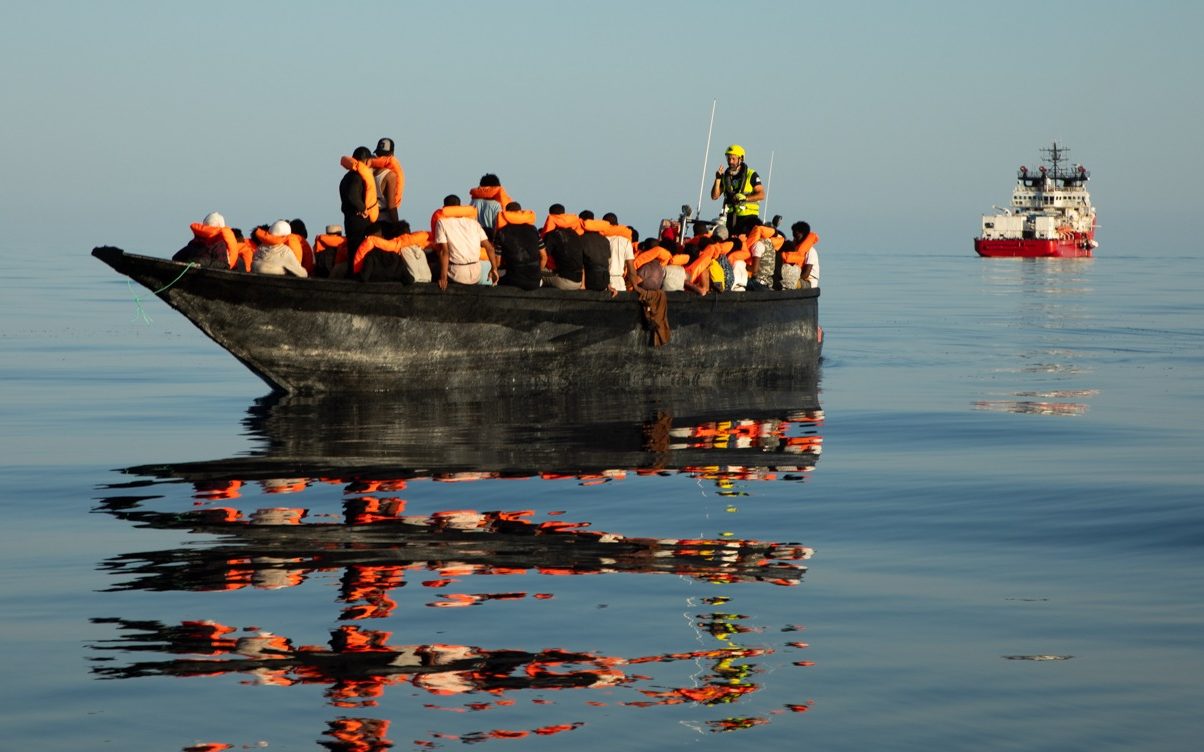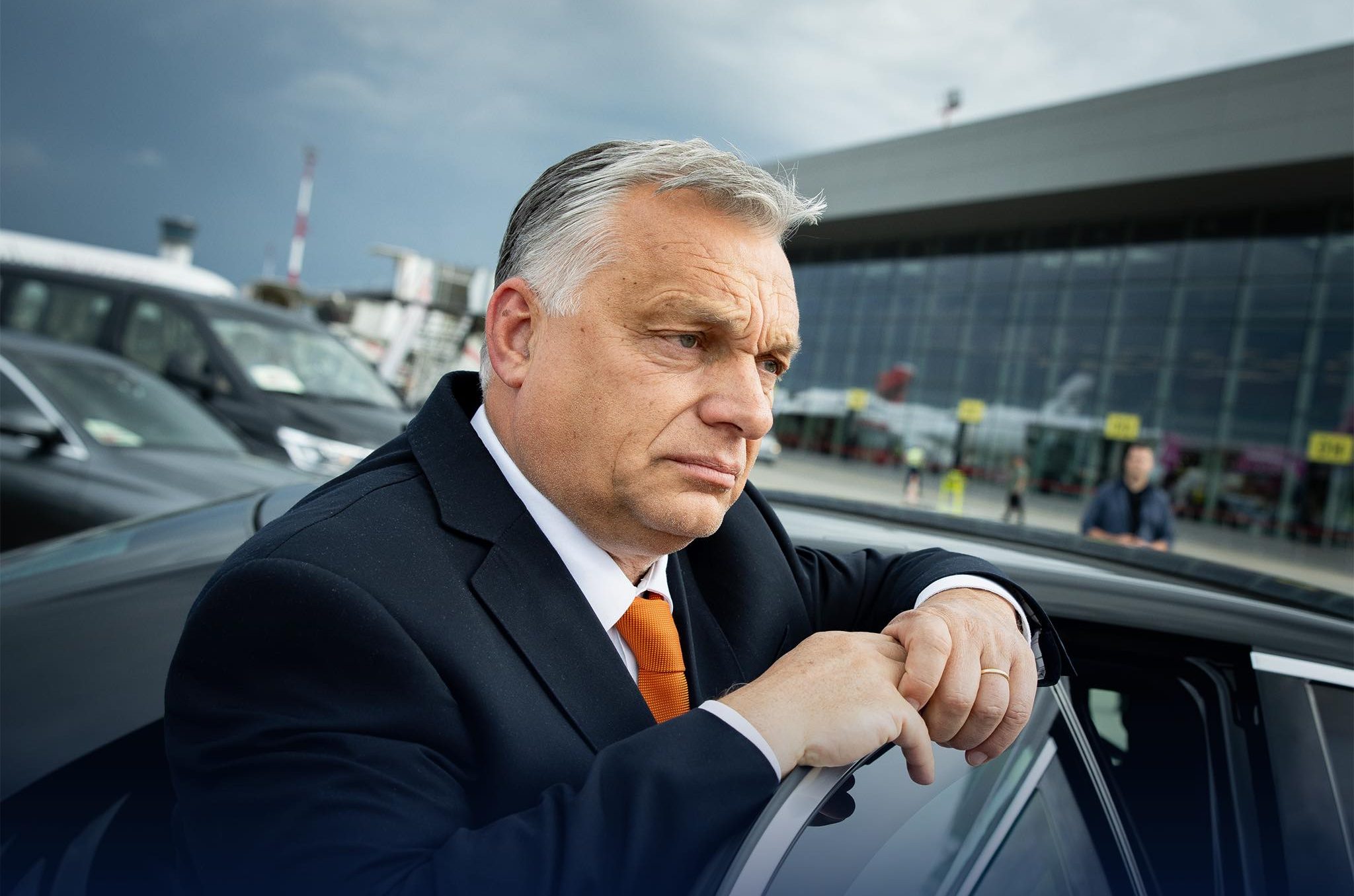
Migrant quotas are a sign of an EU out of ideas and incapable of reform.Continue reading

The situation in Ukraine is more serious than ever, Prime Minister Viktor Orbán said on Radio Kossuth’s Good Morning, Hungary program on Friday. Mr Orbán stressed that there is no solution to the war on the battlefield, and that a ceasefire and peace negotiations are in the interests of the world, Europe and Hungary.
The Prime Minister said that “there are many unpredictable elements” in the present conflict, and in such situations, the organizations and leaders responsible for Hungary’s security must be constantly on standby to be ready for action whatever happens. For this purpose the Defense Council meeting gave specific tasks to the Minister of Defense, the Chief of the General Staff and the Minister of the Interior, he said. He added that “what can be done for the security of the country has been done”.
The Prime Minister maintained that diplomatic work was being stepped up, but “the chances here are not soaring” because there is a “war psychosis” in Europe. The majority view is that this war can be concluded and decided on the battlefield.
At the same time, he stressed that the Hungarian position is that there is no solution to this conflict on the battlefield, “diplomacy must return, politicians must negotiate, there must be a ceasefire, and peace talks must begin in the meantime”. This is in the interest of the world, of Europe and of Hungary, he pointed out.
Viktor Orbán also said that NATO had been cautious so far, and that the position of NATO and the position of Hungarian diplomacy coincided, as NATO had decided not to take part in this military conflict, not to send weapons to Ukraine, and not to plan any military action. What is happening – arms deliveries, information transfer, military support for the Ukrainians – is a decision taken by member states.
He said that the West thought that the Russians could be defeated militarily by Ukrainian soldiers fighting and the West providing weapons, equipment and information. What we have here is “a miscalibrated, misjudged strategy”, the result of which is that the war continues, deepens and widens, he maintained.
He also noted that it was worrying that proceedings had been brought against former US President Donald Trump, “because if there is a man in the Western world today who can stop this war and create peace”, it would be in his interest, and in Hungary’s interest, to have a pro-peace person at the head of the United States.
Mr Orbán also said that the government had made a clear commitment in a very difficult situation: it had undertaken that inflation should be in single figures by the end of the year. In times of war, you need a defense budget, a budget that protects what is important, in addition to guaranteeing the security of the country, he stressed.
He explained that the financial situation of families, pensioners, the reduction of rationing and jobs must be protected. In addition, in times of war, it makes a difference where people keep their savings, “it helps the country if you keep your savings in the Treasury or in Treasury bills”, he said. He added: anyone can help their country by keeping their savings in treasury bills or government bonds.
As far as the EU draft on the mandatory migrant quotas: Hungary and Poland voted against the decision, with “soft no’s from Slovakia, Bulgaria, Malta and perhaps Lithuania”, meaning several countries have indicated that they disagree.
In recent years, it seemed that they could shift the attention of decision-makers in Brussels from the mandatory distribution of migrant quotas to border protection, “because the way to solve this situation is not to distribute migrants but to protect Europe’s external borders,” he said. But “all of a sudden a decision comes along, quite swiftly and quite brilliantly, which says that whichever country does not let in migrants will be forced to do so.” Rules are being created that reserve the right to Brussels to say how many migrants it will distribute, he added.
He stressed that “all we want to say is that the Germans should be right in Germany and let the Hungarians be right in Hungary, so let the Germans make whatever migrant policy they want”. But Hungary believes that this experiment is risky, that the situation where large numbers of migrants from another culture arrive illegally is a recipe for trouble, and “we do not want to take this risk”, Mr Orbán said.
The Prime Minister said that “all we ask of those in Brussels is that they do not want to tell Hungary who we Hungarians live with here, and they do not want to tell us what our migration policy should be”, because this is Hungary’s internal affair.
Featured Photo: Facebook Viktor Orbán